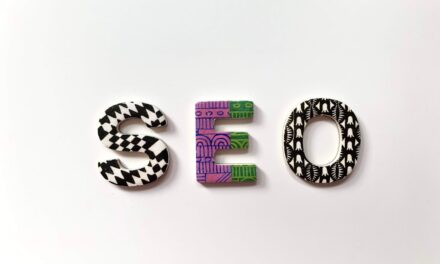Are you looking for ways to efficiently drive more online traffic to your website? SEO and PPC are two options that many businesses use to gain an advantage over their competition. But which is better, and when should you optimize versus pay-per-click?
In this blog post, we’ll explore the advantages and disadvantages of SEO vs. PPC – from helping with keyword research and content creation to driving immediate clicks and conversions – so you can determine the approach best suited for furthering your organization’s online marketing goals.
Defining SEO and PPC and the differences between them
Search Engine Optimization (SEO) and Pay-Per-Click (PPC) are two paramount strategies to improve your site’s visibility on search engine result pages (SERPs).
Think of the internet as a huge library. When people search for a book (or information), they use a catalog. Now, Search Engine Optimization (SEO) is like making sure your book has the right title, summary, and is placed on the right shelf, so it’s easier for people to find when they’re looking.
On the other hand, Pay-Per-Click (PPC) is like paying to have a special display for your book at the library’s entrance. Both methods help your book (or website) get noticed more.
SEO involves optimizing your site with relevant keywords, improving site navigation, and creating high-quality, valuable content that attracts backlinks. Because of the technical nature of some of these SEO tasks, it’s often best to work with a professional to ensure your web presence works properly for exactly your ideal customer searching for what you do online.
On the other hand, PPC involves buying clicks from search engines. It’s an advertising model where you pay a fee every time a user clicks on your ad in the SERP. Instead of earning traffic organically, you pay for it.
The most famous form of PPC is search engine advertising, such as Google Ads. Social media ads, like Facebook Ads or TikTok ads, are also widely popular with local service providers.
The primary difference between SEO and PPC is the way they drive traffic to your site. With SEO, traffic is gained organically (that is, naturally without paying for results) over time by consistently providing valuable content that matches what the searcher needs (this is known as “search intent”). Great SEO lasts even after you’ve completed web-optimizing tasks. Results are usually more authentic and less “spammy.”
In contrast, PPC gives immediate results, driving paid traffic to your site as soon as the campaign goes live, but it requires an ongoing budget as long as you want to maintain performance. In other words, you “pay to play” – as soon as you turn off the tap, results cease.
Understanding the benefits of each approach
Both SEO and PPC provide unique benefits that can contribute to your online presence. Let’s take a look at them:
Benefits of SEO
- Long-term Results: Once your website ranks high in SERPs, it can maintain its position for a long time, driving consistent traffic.
- Cost-Effective: SEO involves no direct cost for traffic. Although it requires investment in content creation and optimization, once done, it continues to attract traffic without additional expenses.
- Trust and Credibility: Websites that rank organically are often perceived as more trustworthy and credible by users.
- Improved User Experience: SEO not only helps you rank higher but also improves the user experience by making your website more navigable and relevant to user queries.
Benefits of PPC
- Immediate Results: Unlike SEO, PPC can drive traffic to your website instantly, making it ideal for new websites or time-sensitive campaigns.
- Precise Targeting: PPC allows you to target specific demographics, locations, and times of day for your ads to appear, providing more control over who sees your ads.
- Measurable ROI: With PPC, you can track every click and conversion, making it easier to measure the return on your advertising spend.
- Brand Exposure: PPC ads can increase brand visibility quickly, even if users don’t click on your ads. They see your brand name and offerings, increasing brand awareness.
It’s essential to note that both strategies require ongoing attention. SEO requires continuous updates and optimization in response to changing search engine algorithms, while PPC requires constant monitoring and adjustment of your campaigns for maximum effectiveness.
A balance of both strategies can help to maximize your online visibility and ensure your website maintains a robust and dynamic web presence.
Exploring the cost differences between SEO and PPC
Comparing the costs of SEO and PPC, it’s clear that each approach has a unique investment structure. SEO is often viewed as a more cost-efficient strategy in the long run.
While initially, it may require a substantial investment of time and resources in creating quality content, optimizing website structure, and building backlinks, these efforts pay off over time as the site begins to rank organically in SERPs, at no additional cost per click.
Conversely, PPC campaigns require an ongoing financial investment. Every click on your advertisement incurs a cost, meaning that the total expense can rapidly increase depending on the competitiveness of the keywords you’re targeting.
However, PPC offers the advantage of immediate results and more control over your advertising spend. You can set a daily or monthly budget and adjust it based on the performance of your campaigns, allowing for flexibility and real-time optimization.
It’s essential to understand that while SEO can yield cost-effective results over the long term, it requires ongoing maintenance to stay responsive to search
algorithm updates.
Similarly, while PPC can drive quick returns, it necessitates continuous investment to keep the traffic flowing. When deciding between SEO and PPC, consider not just the financial aspect, but also the time, resources, and strategic alignment with your overall business goals.
Identifying when to use SEO vs. PPC for maximum impact
Determining when to utilize SEO versus PPC for maximum results essentially depends on your business’s specific circumstances and goals.
SEO is an ideal strategy for building a long-term online presence. If your business aims to establish a robust, sustained presence in the digital world, investing in SEO is a must. It’s suitable if you’re in a niche market with less competition on keywords, or if you have the time to wait for the results to accumulate organically.
PPC is perfect for immediate results and target-specific marketing. If you’re launching a new product or promotional campaign and want immediate visibility, PPC should be your choice. It’s also excellent if you’re operating in a high-demand market where organic ranking naturally develops as a result of your customers searching for what you do in mass.
Remember, you don’t have to choose between SEO and PPC. They can work synergistically. An integrated strategy using both SEO and PPC can give you the benefits of both immediate visibility and long-term presence. The key is to continually evaluate and adjust your strategies based on their performance, market trends, and business goals.
Tips for leveraging SEO and PPC campaigns
Leveraging both SEO and PPC in your digital marketing strategy can yield fantastic results. Here are some tips to help you make the most of these two powerful approaches:
- Combine Keyword Strategies: SEO keyword research can reveal the terms for which you’re most likely to rank organically. Incorporate these keywords into your PPC campaigns to supplement your organic efforts. Similarly, use PPC keyword data to know which terms convert well, and target these in your SEO strategy.
- Test with PPC and implement with SEO: PPC allows you to test the effectiveness of keywords, landing pages, and ad copy more quickly than SEO. Use the insights gained from PPC testing to inform your SEO strategy.
- Cover All Bases: Use PPC ads to target high-competition keywords where it’s hard to rank organically. Simultaneously, use SEO to focus on long-tail keywords that may not have enough search volume to justify PPC spend but can accumulate substantial organic traffic over time.
- Consistent Branding: Maintain consistent branding and messaging across both your SEO and PPC efforts. This not only improves recognition and trust among users but also enhances your brand’s visibility and authority on SERPs.
- Utilize Remarketing: Use PPC remarketing campaigns to target users who have visited your site organically but did not convert. This can dramatically improve your conversion rates.
Remember, SEO and PPC are not mutually exclusive. They complement each other exceptionally well when used together. The insights from each can help reinforce and improve the other, leading to a more robust, successful digital marketing strategy.
Summing Up
Now that you are well-versed in the differences between SEO and PPC and have explored the cost and benefit of each approach, you can anticipate which is most beneficial to your specific marketing goals.
Analyze your target audience and desired objectives, then determine if SEO or PPC gives you a more powerful platform for creating engaging, profitable digital campaigns.
So, go out there and get creative with optimizing your digital presence today by leveraging both SEO and PPC strategies! And when it comes down to it, any investment directed toward reaching potential customers is money well spent!




